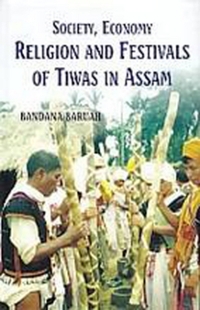Question
1. Why will the Federal Reserve use an easy money policy? A. to increase the money supply B. to reduce the money supply C. to
1. Why will the Federal Reserve use an easy money policy? A. to increase the money supply B. to reduce the money supply C. to stop high inflation
____ 2. In the United States, it would be difficult for Congress to approve a federal budget without the president's signature. A. true B. false
____ 3. When capital for starting a business is derived from a country's own citizens, it is called A. foreign direct investment. B. internal financing. C. foreign portfolio investment.
____ 4. __________ was a regional trade agreement that included the United States, Canada, and Mexico. A. The Free Trade Area of the Americas (FTAA) B. The Central American Free Trade Agreement (CAFTA) C. The North American Free Trade Agreement (NAFTA)
____ 5. Specialization can cause job __________ because fewer types of skills are in demand if a country only produces certain types of goods. A. growth B. loss
____ 6. A trade war usually hurts all countries involved. A. true B. false
____ 7. According to Keynesian economics, how can the government reduce inflation? A. printing paper money to put more money in circulation B. requiring federal reserve notes to be backed by gold C. reducing spending to decrease demand
____ 8. The increasing interconnectedness of economic systems around the world is A. sustainable development. B. offshoring. C. globalization.
____ 9. In the United States, state governments can collect revenue with taxes, but local governments cannot. A. true B. false
____ 10. What is an argument FOR protectionism? A. protecting new domestic industries from foreign competition B. guaranteeing that domestic goods will be less expensive C. making a wider variety of goods available to consumers
____ 11. Keynesian economics favors an active role for government in the economy so government can increase supply. A. true B. false
____ 12. A tax on an imported good is a(n) A. embargo. B. import quota. C. tariff.
____ 13. Suppose that an income tax is proportional. If people making $75,000 a year pay 15 percent of their incomes under this tax, what do people making over $200,000 a year pay? A. 15 percent of their incomes B. 20 percent of their incomes C. $75,000
____ 14. Personal income is the tax base for a property tax. A. true B. false
____ 15. Under which kind of tax does the percentage of income paid rise as income increases? A. progressive tax B. regressive tax C. proportional tax
____ 16. An argument against multinational corporations is that they may act unethically by paying very low wages to workers in other countries. A. true B. false
____ 17. Protectionism is A. the removal of trade barriers to protect manufacturers' interests. B. the use of trade barriers to protect domestic industries. C. outlawing trade with another nation as a form of punishment.
____ 18. Unequal distribution of resources among countries results in specialization and trade. A. true B. false
____ 19. Open market operations are a tool the Federal Reserve uses to regulate the amount of money in the economy. This tool involves A. changing the required reserve ratio. B. changing the interest rate on loans to financial institutions. C. buying and selling government securities.
Step by Step Solution
There are 3 Steps involved in it
Step: 1

Get Instant Access to Expert-Tailored Solutions
See step-by-step solutions with expert insights and AI powered tools for academic success
Step: 2

Step: 3

Ace Your Homework with AI
Get the answers you need in no time with our AI-driven, step-by-step assistance
Get Started


